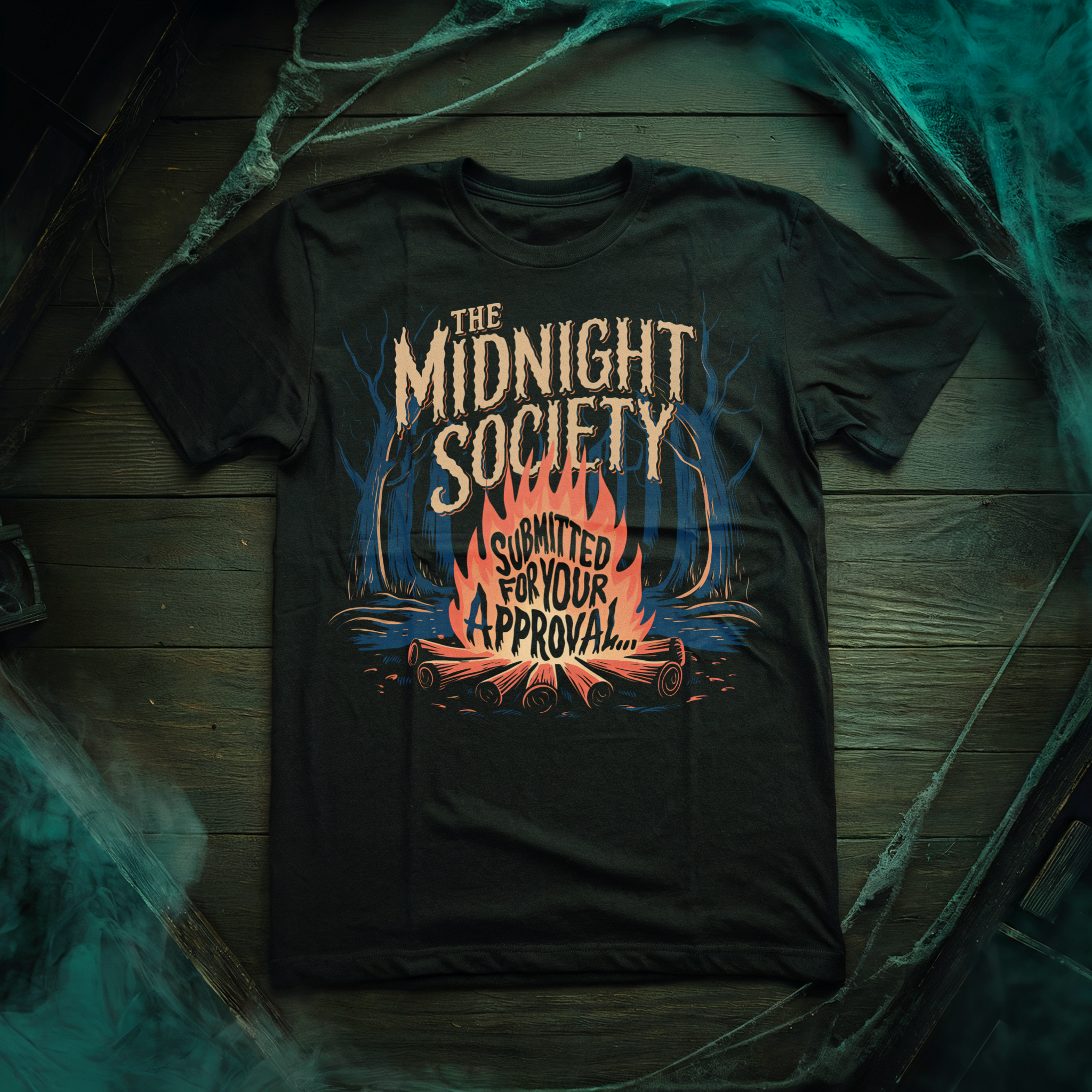If you were watching NOFS’s coverage of this year’s Fantasia Fest, you no doubt are already familiar with 12 Hour Shift. Written and directed by horror headliner Brea Grant, 12 Hour Shift follows Mandy, a drug-addicted nurse on a nightshift from hell. To make ends meet, Mandy harvests organs from dead patients to be sold on the black market. Running this illicit organ business is Karen, Mandy‘s coworker and all-around ass-kicker/name-taker. NOFS had the chance to speak with Brea Grant and Nikea Gamby-Turner, who portrays Karen, about this mad, strange, very dark workplace comedy. Read on to hear what they had to say, but be warned: spoilers for the film abound.
Grant DeArmitt for Nightmare on Film Street: Brea, you set 12 Hour Shift in 1999. Why did you choose that time period and that year?
Brea Grant: I’m a child of the 90s. I was writing about a place that I know really well. The original script was set in East Texas where I am from. I experienced East Texas in the 90s, so it made sense to me to set the movie and a time and a place that I knew really well. There are a lot of urban legend nods in the movie, well, Y2K has become kind of an urban legend to me. I was convinced that the world was going to end.
NOFS: Oh yeah, the urban legends are plentiful in this movie, I especially thought of the “waking up in the bathtub with a kidney gone” story. Is that one of the legends that inspired this movie?
Grant: Yes. There are a couple other little urban legend Easter eggs in there. If you listen really carefully, the newscasters on TV are talking about various urban legends in the background as if they’re real news.
![12 hour shift 3 [Exclusive Interview] Brea Grant & Nikea Gamby-Turner Talk About The Psychopaths and Urban Legends In 12 HOUR SHIFT 11 12 hour shift 3](https://nofspodcast.com/wp-content/uploads/2020/10/12-hour-shift-3-800x403.jpg)
NOFS: Speaking of selling those organs, Nikea, your character (Karen) is one of the people who is running the illicit organ-selling business out of this hospital. Her partner, Mandy, is involved with this operation to feed a drug habit. But why is Karen involved?
Nikea Gamby-Turner: I am huge on back story. I feel like Karen does it because: one, she can. Number two, I feel like she’s given a lot of her life to this hospital. She loves where she works she loves the people that she works with, however she isn’t always able to make ends meet. I think this is probably the best way for her to be able to help herself, to live her life. You know, [her job] can be a little boring, doing the same mundane thing everyday. And I think that she is a person that likes to have a little bit of action. You know?
NOFS: So part of this is a little bit of morbid fun for her? Would you say?
Gamby-Turner: Yes. I think, too, that Karen likes to be in control. She’s in control of the hospital. She’s in control of the organs. All of those things factor into why she is actually doing this stuff. Also there’s the fact that she can do it and easily get away with it. She’s been getting away with a while. She doesn’t believe that she’ll get caught.
![12 hour shift 4 [Exclusive Interview] Brea Grant & Nikea Gamby-Turner Talk About The Psychopaths and Urban Legends In 12 HOUR SHIFT 12 12 hour shift 4](https://nofspodcast.com/wp-content/uploads/2020/10/12-hour-shift-4-800x468.jpg)
NOFS: Brea, I wanted to ask about the “Blood of the Lamb” scene, in which Mandy is ripping a kidney out of someone and two of the characters actually start singing, giving the whole scene a “musical number” feel. Can you talk about how that scene came to be?
Grant: In the script, it was just written as a montage, and I knew I was going to need a song over that montage. I reached out to a couple of 90s bands trying to get them, and either they didn’t respond or they were so far out of our price range, I wasn’t able to get them. So while we were there, we found this little chapel and I had this idea of using a church song, one that I would have sang in church growing up. That song fit the scene as well as the feel of movie.
Fortunately, we had Tara Perry and Tommy Hobson both on set. I knew they could sing because of a children’s show called Fresh Beat Band. I also knew that Matt Glass, who was our cinematographer and our composer, could come up with something. So what we did was shoot them singing to no backing track, and Matt had to compose it based on their vocals, which is quite difficult. He was able to do it. He’s brilliant, and if you like the soundtrack, it’s coming out on Burning Witches Records soon. So if you like, it you can purchase it.
NOFS: Nikea, do you think that the events of this film cement Mandy and Karen‘s friendship? Because at the beginning, I was viewing them as more like business partners. Do they become really good friends over the course of this movie or have they had that relationship established before this and you just see it more because of what goes on in this film?
Gamby-Turner: I think they have their own type of friendship. You know how you call someone your work friend? I don’t think they’re just that, I think they Karen understands Mandy in a way that no one else necessarily does. She knows that she has all these flaws, but there’s also something about her that Karen can relate to. Still, Karen knows that she can’t quite trust her.
I do think that Karen and Mandy‘s relationship was solidified by [the movie]. I think that Karen can trust Mandy a little bit more at the end. Even though she is having these issues during that time, [Mandy] was really able to step up, and I think Karen admired her for that. So by the end of the film, yeah, I think it did it establish that friendship.
NOFS: I definitely got the sense that this was a very uncommon friendship, and that was fascinating.
Gamby-Turner: There’s definitely that “opposites attract” kind of thing.
![12 hour shift 2 [Exclusive Interview] Brea Grant & Nikea Gamby-Turner Talk About The Psychopaths and Urban Legends In 12 HOUR SHIFT 13 12 hour shift 2](https://nofspodcast.com/wp-content/uploads/2020/10/12-hour-shift-2-800x395.jpg)
NOFS: Friendship is definitely a theme in this movie, but I also got the sense that family and the weird definitions of what family can be was another theme of this movie. Specifically, in the character of Regina. She seems to value her relationship, her family relationship, with Mandy. And she does that even though she is… maybe a psychopath?
Both, at the same time: Definitely a psychopath. (laughs)
NOFS: Great, noted. So Brea, does she actually value that relationship? Or is that is she just using that to get out of (or into) stuff?
Grant: I think Regina does have some genuine love for Mandy, as much as she can possibly have. I do think Regina is written as an actual psychopath, but that doesn’t mean she doesn’t believe in everything she says. I think she believes everything she does is right, and she’s doing what’s right for that moment for herself and for the people around her. She has a child. She has Mandy. She has a family. She appreciates that Mandy got her this job. She knows she needs a job.
There are things about Regina that are not completely unreasonable, it’s just the way she views the world is a little bit unreasonable. And that’s when you get into these psychopathic tendencies, she thinks, “I have to put myself,” first because that is the way she survived and that’s how she survives up until this point.
Gamby-Turner: It’s that flight or fight. She’s fighting.
![4 scaled [Exclusive Interview] Brea Grant & Nikea Gamby-Turner Talk About The Psychopaths and Urban Legends In 12 HOUR SHIFT 14 4 scaled](https://nofspodcast.com/wp-content/uploads/2020/08/4-scaled.jpg)
NOFS: Yeah, I loved the weird logic to Regina‘s character. Especially when she’s making out with this skater guy and she pulls out a knife to kill him, to take his kidney. I was surprised, but I also thought, “that makes sense.”
Grant: What’s great about Chloe (Farnworth, Regina) as an actress is that you can watch her make decisions on screen. The decision she is about to make is all over her face. So we all understand that Regina is making a lot of these decisions in the moment, but they all make sense to her.
In casting that role, we wanted to make sure we had someone who was somewhat sympathetic. It was tough. We watched a lot of tapes. So many people played her as if she was a real badass, but there’s something kind of sweet about Chloe. And so when Chloe came in and played Regina as the sort of sweet and well-meaning psychopath, it was just so different and so cool to see.
Gamby-Turner: She doesn’t villainize Regina. Angela (Bettis, Mandy) too, they have a great way of making you want to root for them even though you may think their actions are crazy.
![12 hour shift 1 [Exclusive Interview] Brea Grant & Nikea Gamby-Turner Talk About The Psychopaths and Urban Legends In 12 HOUR SHIFT 15 12 hour shift 1](https://nofspodcast.com/wp-content/uploads/2020/10/12-hour-shift-1-800x360.jpg)
NOFS: I love that this movie really sympathizes with people that are doing these things that we might consider insane her horrific. Speaking of insane and horrific, Nikea, at the end of the movie, Karen has gone through all this wild stuff. And she seems almost unfazed. Is that because she has seen this type of thing before? Or is that just because she is so able to roll with the punches that well?
Gamby-Turner: Karen is definitely a “roll with the punches,” “keep it together” type of person. I love how unfazed Karen is about everything. It’s almost like Karen‘s life revolves around that hospital. That hospital is what she has. She’s not anxious to go home to anything she’s not she doesn’t have anything to go home to. So it doesn’t bother her. She doesn’t have anything to take care of or anything like that. If they ask her to stay she’ll stay, because she still has an organ-selling ring to run.
Like I said, Karen just loves being in charge. It’s exciting for her because she does the same things, all day, everyday. And this is one exciting day, where she was like “ooh, something is happening.” She knows that something could go bad quick, and she needed to make sure that Mandy had it. But I also think she was putting out fires of her own too.
I think Karen has figured out some sort of scenario like this before. In case she did get caught, how she would handle it. Like a back-up plan or something. Because while she can think on the fly, I think Karen is always keeping it together. She’s very organized. She deals with people how she wants, to which is what I love about that character.
For more music, madness, and medical malfeasance, make sure to check out 12 Hour Shift, on VOD now. Once you do, let us know your thoughts on the movie over on Facebook, Twitter, and Instagram. And for more interviews with all the most talented creators in horror, keep lurking at Nightmare on Film Street.
![8 scaled [Exclusive Interview] Brea Grant & Nikea Gamby-Turner Talk About The Psychopaths and Urban Legends In 12 HOUR SHIFT 16 8 scaled](https://nofspodcast.com/wp-content/uploads/2020/08/8-scaled.jpg)





![12 hour shift featured [Exclusive Interview] Brea Grant & Nikea Gamby-Turner Talk About The Psychopaths and Urban Legends In 12 HOUR SHIFT 10 12 hour shift featured](https://nofspodcast.com/wp-content/uploads/2020/10/12-hour-shift-featured.jpg)



